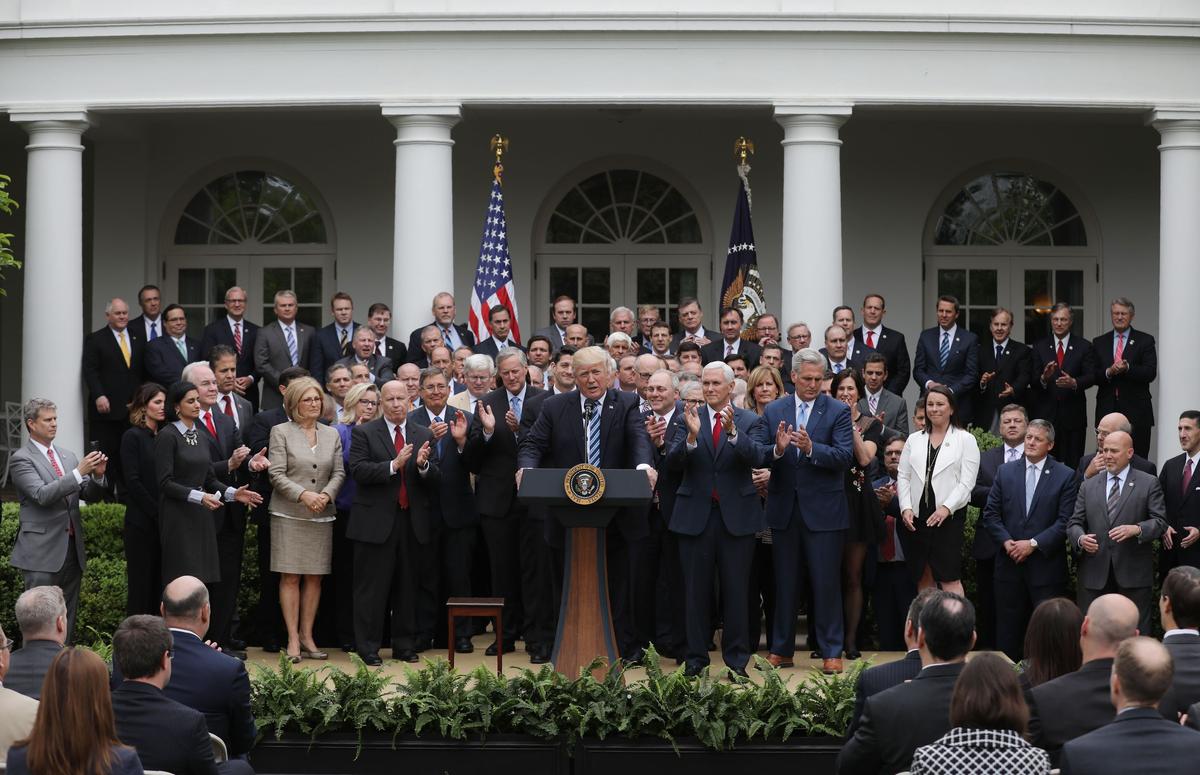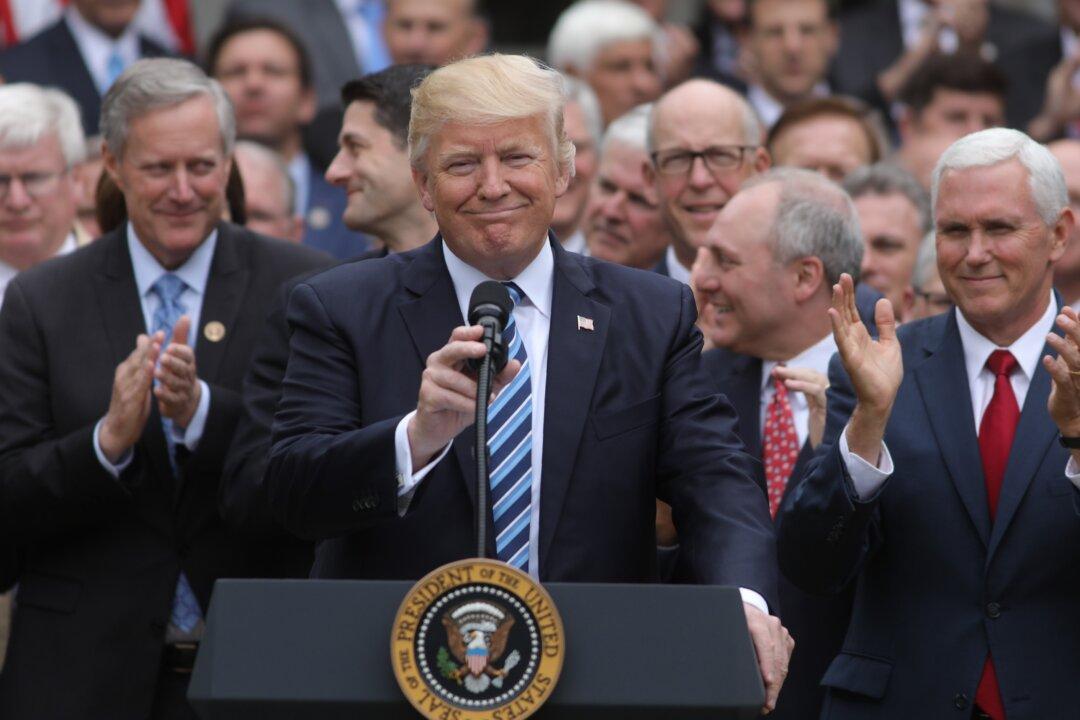WASHINGTON—The House of Representatives approved a bill to repeal Obamacare on Thursday, handing President Donald Trump a victory that could prove short-lived as the healthcare legislation heads into a likely tough battle in the Senate.
The vote to repeal former President Barack Obama’s signature domestic achievement was Trump’s biggest legislative win since he took office in January, putting him on a path to fulfilling one of his key campaign promises as well as a seven-year quest by Republican lawmakers.
With the 217-213 vote, Republicans obtained just enough support to push the legislation through the House, sending it to the Senate for consideration. No Democrats voted for the bill.
The legislation is by no means sure thing in the Senate, where the Republicans hold a slender 52-seat majority in the 100-seat chamber and where only a few Republican defections could sink it.
Despite holding the White House and controlling both houses of Congress, Republicans have found that overturning Obamacare is politically fraught, in part because of voter fears that many people will lose their health insurance as a result. Republicans have long criticized Obamacare as government overreach.
As Republicans crossed over the vote threshold to pass the bill, Democrats in the House began singing “Na na, na na na na, hey hey hey, goodbye,” a rowdy suggestion that Republicans will lose seats in the 2018 midterm elections because of their vote.
Trump Celebrates
Within an hour of the vote, Trump celebrated with House lawmakers in the White House Rose Garden.
“I went through two years of campaigning and I’m telling you, no matter where I went, people were suffering so badly with the ravages of Obamacare,” Trump said. “We are going to get this passed through the Senate. I am so confident.”






